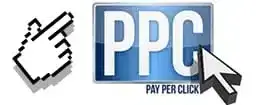PPC (pay-per-click) is one of the most efficient ways for a small web based company to generate leads. With the ability to measure results precisely, target prospects in a narrow manor, and tightly manage your spending, PPC is one of the top lead generating tools at your disposal.
However, this technique does have a downside. Because PPC campaigns are so convenient and easy to set up, the small business owner can easily spend thousands of dollars before they learn some hard lessons on what works and what doesn’t.
Here are some of the most common PPC mistakes.
Problem: Using the home page as your pay-per-click landing page
You have many options for your PPC campaign: Google, Yahoo!, and others. It is your responsibility to decide where to direct the traffic that clicks on your ad. Most businesses send their traffic directly to the home page. This might appear to be a good strategy since the home page is the equivalent to the front door of your store, right?
Wrong.
Most home pages are cluttered with information, and generally cover many broad topics and news items. When the user is presented with your home pager and many different choices, products, and services, they will grow frustrated and leave quickly if they don’t see something that they are looking for.
Solution: Always send the visitor from your PPC ad to a well crafted, easy to use, and specific landing page. This landing page must be specific to that PPC ad so you can track the success of your campaign.
Problem: Not bidding high enough to secure top spot
You are the advertiser. As the advertiser with PPC you have the option on how much you feel is necessary to pay for any particular search term. Being that PPC works on an auction model the more that you pay relative to the other bidding advertisers the higher up your ad will appear.
The most popular search terms will have up to a dozen or more ads listed on search result pages. This gives off the feeling that any noob can drive clicks with PPC. Consider this staggering statistic though: 85% of all PPC clicks are on the first page and on the top three positions! The scraps (15%) go to the remaining positions, which could number in the hundreds or more.
This means that if you don’t bid high enough to get on the first page in the top three you are just wasting your time. Granted, you’re not necessarily wasting money due to the fact that if no one clicks on it you pay nothing. Of course, if you make the decision to hide yourself further down the list it will be tough generating leads.
Solution: Choose search terms and possibly less of them that will consistently make you appear in one of the top three spots.
Problem: Not making ad copy specific enough
At Yahoo! your PPC ad gets 190 characters (including spaces). Google offers only 70, with no colors, pictures, or even a company logo. Only words. Many of the advertisers out there today waste this tiny space with vague, meaningless terms, or generalized statements that do not have a definitive uniqueness to what they are offering.
This leads to searchers not clicking on your ad. On the much more serious side of things the wrong searcher will click on your ad due to a poorly designed ad copy, realize when they hit the landing page that it is not what they were looking for, and quickly exit. That click cost you money but did not generate a lead.
Solution: Be very specific and unique with your ad copy. If you have features that are unique to you or something that sets you apart from the others in your market this is a good place to make that known. Also, don’t ignore your local customers.
